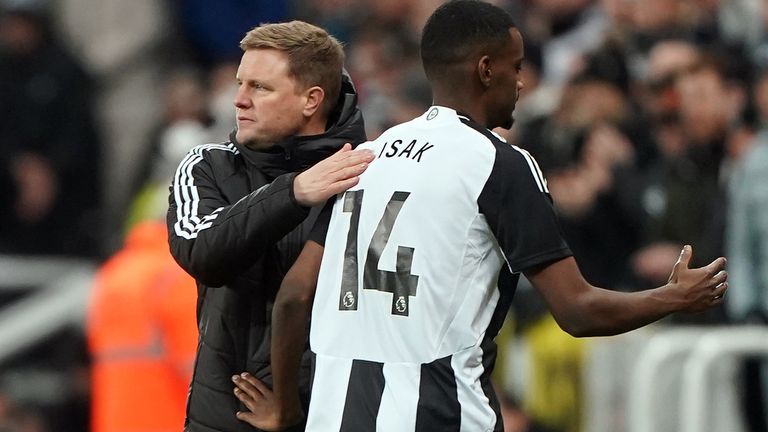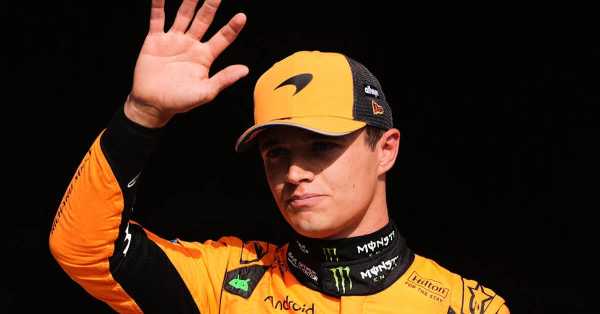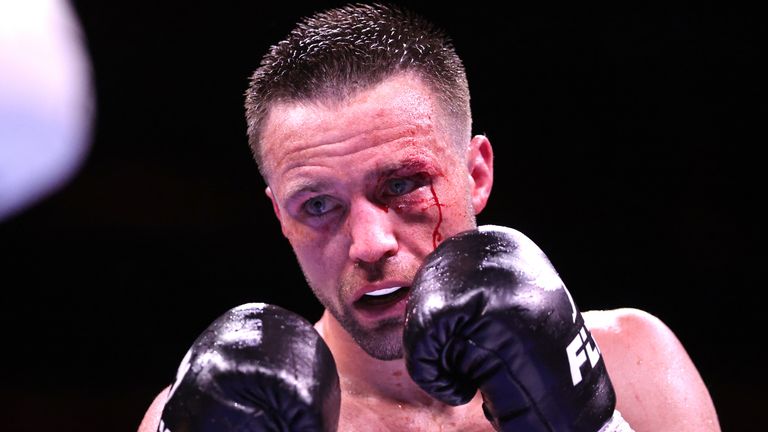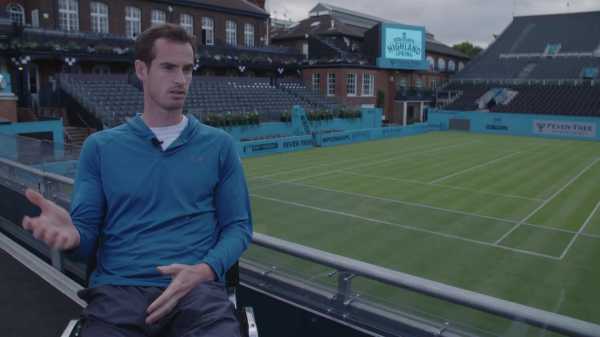
0:25
Andy Murray says Queen's Club is the ideal place to make his return
When Andy Murray steps out onto the grass courts of Queen’s Club for his first taste of competitive action, the nation will be holding its breath.
It’s been 11 months since we last saw the former world No 1 playing competitive tennis, but Murray is back and he seems more determined than ever to show the world that he is nearing somewhere near his best.
The 31-year-old was knocked out of the Wimbledon quarter-finals last July as a hip injury brought a painful end to his season.
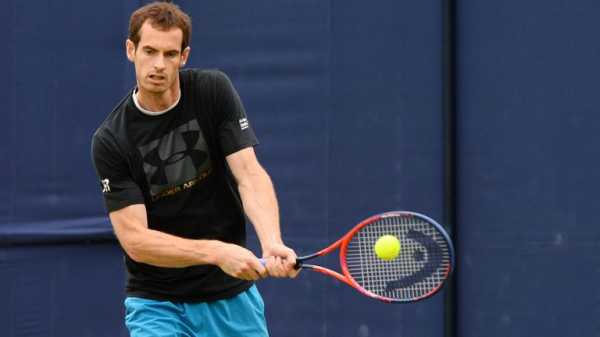
He was then forced into the difficult decision of undergoing the knife in January after pulling out of the 2017 US Open and this year’s Australian Open.
Murray had only been seen on court during a charity match against Roger Federer last November and one exhibition set against Roberto Bautista Agut in December.
He made a tentative commitment to appear in the grass-court tournament in Rosmalen last week, before again pulling out at the last minute to spark fresh fears that he wouldn’t make it back in time for Wimbledon.
But the three-time Grand Slam champion has been practising regularly for the past fortnight and a work-out on Friday at Queen’s Club with fellow Briton Cameron Norrie convinced him to return.
On Monday, he pulled up well, playing a practice set with American Sam Querrey, his last opponent at Wimbledon in July of last year.
“It has been hard,” Murray told the press on Sunday. “I came back quicker from my back surgery [in 2013]. I was playing four months later. But my back didn’t feel perfect for a good nine months after I came back. I spoke a lot about that at the time.
“It took me quite a lot of time until I felt good again, and it’s the same here. I’m not pain free but I don’t expect that either. I’ve had an issue with my hip for about eight years now. I’ve been seeing a hip specialist in Australia for a long time. It’s not perfect, but I’d like to get back to the level where I’m able to compete again. That’s what I’m hoping I’m getting to.”
The Scot slowed down the process of recovery in order to prepare smartly, which has enabled him to rehabilitate quicker.
“I was very concerned,” Murray said. “Even now, when you’ve not played for such a long time, you’re naturally going to have doubts. You don’t know how you’re going to feel until you start competing and playing again. Whether I started now or three weeks ago or in five weeks time, those doubts will be the same.
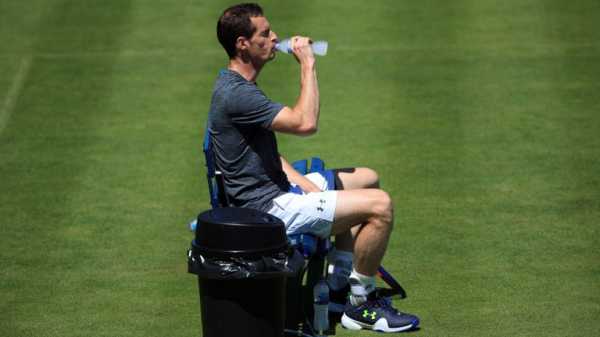
“Going through rehab is difficult. Sometimes it can go smoothly, but I obviously had the surgery and it can be a bit trickier. There were periods during the rehab when I felt OK and you try to increase the amount of load you’re trying to be doing. But the body doesn’t respond as well and it’s about finding the sweet spot with what you’re capable of doing in each period.
“Everybody responds differently and it’s about going through each stage and trying to be guided by your body and the people around you. Hopefully you make the right decisions.
“But I decided I needed to slow things down. It’s not like a re-injured my hip. I was not responding as well when I went back on the court. It’s your body telling you to slow down a bit. It’s what you have to be guided by.
“You listen to what the doctors say and try to progress under their recommendations. That’s when you have to be smart and hopefully slow down and get back in the gym and do the rehab.”
As well as three-time Wimbledon champion Novak Djokovic, there is also 2016 and 2017 Wimbledon runners-up Milos Raonic and Marin Cilic along with 2014 Queen’s winner Grigor Dimitrov.
But Murray will only have eyes on Kyrgios, who is on a roll after reaching the semi-finals at the Mercedes Cup in Stuttgart last week.
“It’s obviously a very difficult match, because when his mind is on it, he’s one of the best grass-court players in the world,” he said. “The way he serves and how he can play every shot, you’d think there won’t be loads of long rallies. But for your body, there’s a lot of quick points so there are positives and negatives there.”
There are no expectations on the Scot, and no looking ahead, as he kicks off his comeback. Murray wants to get back to his best but is all too aware that he has to play a smart game and not overplay when it comes to his scheduling.
“I’ve missed playing, I’ve missed competing,” Murray added. “I haven’t fallen out of shape and ballooned in weight and gone off the rails. I’ve tried to do the right thing and listen to my team and everyone around me, to try to get on the court and start competing. I have absolutely zero expectations and just take time. I would love to get back to the top of the game again, but I just want to start playing again and feel good.
“I haven’t played a match for 11 months. I don’t know how I’m going to feel when I do start competing and play a bunch of matches in the space of a few days. I’m going to have to be smart with scheduling initially and make sure I’m not overplaying.
“I made quite a few big changes in terms of the amount of time I’m spending on the court training and the way I’m doing it. Just to take a load off the body. I’ve put a lot of stress on it over the years. And when I’m competing, it’s another stage in the rehab. There’s no guarantees how you’ll feel after a match. I’ll get a better idea after Tuesday.”
How will Andy Murray get on?
Comment below to get involved in the debate, but please adhere to our House Rules. If you wish to report any comment, simply click on the down arrow next to the offending comment and click ‘Report’.
We have tennis coverage from the ATP Tour as we head to Germany for the Gerry Weber Open in Halle, live on Sky Sports Arena all this week.
Never miss the big kick-off or have to deal with interrupted games or low quality streams with a NOW TV Sky Sports Pass this summer. You’ll get exclusive coverage of the 147th Open from Carnoustie, The Ryder Cup. England’s summer Rugby tour to South Africa, ATP Tour, World Darts Matchplay, and loads more starting from just £7.99. No contract.
Also See:
Sourse: skysports.com
